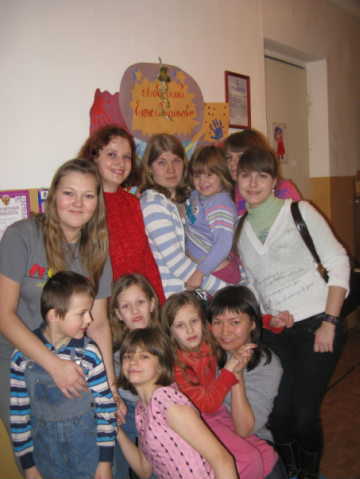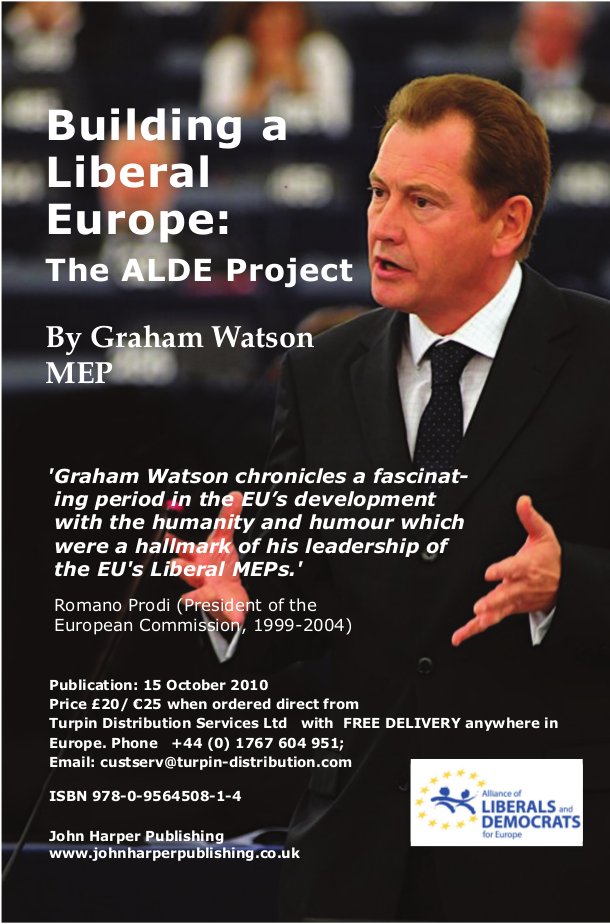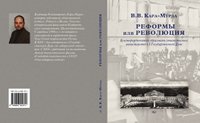Vladimir Lukin: co-founder of YABLOKO and a diplomat with a God-given talent
Biography of one of the most experienced politicians in Russia

Photo: Vladimir Lukin at the conference of the Moscow branch of YABLOKO
Today is the anniversary of Vladimir Petrovich Lukin, a man with a unique path in politics. Together with Soviet dissidents, he openly opposed the invasion of Soviet troops to Czechoslovakia in 1968, worked as an Ambassador to the US, was an MP of the State Duma and Russia’s Human Rights Ombudsman, and finally was a co-founder of YABLOKO (actually the name of the party is derived from the names Yavlinsky, Boldyrev, Lukin). Now Professor Lukin is a senator of the Federation Council, representing the party in the legislative branch. He is one of the few democratic politicians in Russia who have always managed not only and not so much to oppose the system as to act as a subtle diplomat, influencing it from within, making it more humane and fair. Today we would like to recall the highlights his political biography.
Vladimir Lukin was born in Omsk in 1937. His parents were subject to Stalin’s repressions in the late 1930s. Professor, Doctor of Historical Sciences.
Knight of the Order of Merit for the Fatherland III (2014), IV (1998) degree, the Order of the Badge of Honor (1999). He was awarded the Paralympic Order (2014).
1959. He graduated from the historical faculty of Moscow State Pedagogical University named after Vladimir Lenin (1959). He was the classmate of famous singers and composers Yuri Ryashentsev and Juliy Kim. 1961-1964 – post-graduate student of the Institute of the World Economy and International Relations (IMEMO) of the USSR Academy of Sciences, thesis on the international labour movement. In 1964-1965 he was a research fellow.
1965-1968. Senior consultant of the Czechoslovak editorial board of the journal Problems of Peace and Socialism. In 1968 he opposed the invasion of Soviet troops to Czechoslovakia, after which he was sent to Moscow and was in listed as “restricted to travel abroad”.
1968-1987. Head of the Far Eastern Policy Sector of the Institute of the USA and Canada of the USSR Academy of Sciences. He defended his thesis on the US – China relations. “I worked at the Institute of America and studied it for fifteen years, never actually visiting the country. The authorities did not like certain aspects of my biography – I openly did not support the intervention in Czechoslovakia, actively made friends with dissidents… “, Lukin recalled.
1987-1989. Head of Department of the Pacific and South-East Asia Department of the USSR Ministry of Foreign Affairs. In 1989 – Deputy Chief, Head of the Department of the Office of Evaluation and Planning of the Ministry of Foreign Affairs. In 1989-1990 – head of the analysis and forecasting group at the secretariat of the USSR Armed Forces.
1990. Elected People’s Deputy of the RSFSR in the 9th Podolsky national-territorial constituency (the Moscow region), running from the electoral bloc “Democratic Russia”. Elected member of the Soviet of Nationalities of the RSFSR Supreme Soviet on a quota from Sakhalin. He was a member of the Constitutional Commission, actively participated in the writing of the first and second chapters of the Constitution.
1990. Elected Chairman of the Committee of the Supreme Soviet of the RSFSR for International Affairs and Foreign Economic Relations, became member of the Presidium of the Supreme Soviet of the RSFSR. He worked on the preparation of new contractual interstate relations with the former Soviet republics. In 1991 he was included in the Collegium of the Ministry of Foreign Affairs of the USSR.

Photo: Ambassador Vladimir Lukin and US President Bill Clinton
1991-1993. He received a diplomatic rank of Ambassador Extraordinary and Plenipotentiary. He was considered the most likely candidate for the post of Foreign Minister of the new Russia. However, Lukin’s independence, independence of his judgments and lack of readiness to accept any proposals coming from abroad for the sake of momentary benefit and to the detriment of national interests did not suit Boris Yeltsin: Lukin knew how to say “no”, and, therefore, was sent to honorable resignation as Ambassador to the United States.
He worked in Washington from February 1992 to September 1993. Since March 1992 he was Russia’s observer in the Organisation of American States. With Lukin’s coming to in the Russian Embassy in the United States, many of our compatriots abroad – writer Alexander Solzhenitsyn, musician Mstislav Rostropovich, writer Vasily Aksenov, poet Naum Korzhavin, and sculpter Ernst Neizvestny – actively joined the work of the Embassy to support Russian culture and promote economic reform. In a short period of time, the Embassy established the Culture Assistance Fund, the Orphans and Invalids Support Fund, and the Fund for Supporting Russian Fundamental Science.
During the summit meeting of January 1993, when asked by Russian President Boris Yeltsin about the work of the Russian Ambassador, Bill Clinton, in the presence of the Russian and American delegations, replied: “I would like to have such a person in my team”.

Photo: Vladimir Lukin, Alexander and Natalia Solzhenitsyn
During his diplomatic work, Vladimir Lukin established friendly relations with Alexander Solzhenitsyn and his family, facilitated the writer’s return to Russia, and conducted active correspondence with him, discussing the socio-political situation in the country: “An attempt to alienate Russia from Europe with the help of another sanitary cordon … is a very dangerous medieval venture,” Lukin wrote to Solzhenitsyn. According to Lukin, he left the post of Ambassador because of disagreement with some aspects of foreign policy conducted by Russian Foreign Minister Kozyrev. Later, Lukin was offered the post of Ambassador in the UK, but he preferred to return to Russia and engage in political activities.

Photo: A leaflet of the Yavlinsky-Boldyrev-Lukin electoral bloc
1993. He became one of the founders of the electoral association “Yavlinsky-Boldyrev-Lukin”, and later the YABLOKO party was created on the basis of this bloc. Elected deputy of the State Duma. From 1993 to 2004 he was Deputy Chairman, First Deputy Chairman of the party.

Photo: YABLOKO MPs in the State Duma: Vladimir Lukin, Grigory Yavlinsky and Sergei Ivanenko, 1997.
Speaking about the meaning of the creation of YABLOKO, Lukin said: “The meaning of this bloc was that it supported the further development of democracy and Russia, as a democratic country. That is why it is the opposition to Yeltsin and his government, first of all, the opposition associated with disagreement with the methods of economic reform that have been carried out, and with a number of aspects of social and other internal political problems, first of all. The most serious disagreements included such moments as some aspects of economic policy, when prices were released uncontrollably and there was granted a possibility of uncontrolled enrichment to groups of people, the emergence of a caste of oligarchs, and so on.”

Photo: Vladimir Lukin with a basket of apples (“YABLOKO” means “apple” in Russian).
In 1995 and 1999, he was once again elected deputy of the State Duma. In Parliament, he headed the Committee on Foreign Affairs, was member of the Committee on Public Associations and Religious Organisations and Vice Speaker of the State Duma. Vladimir Lukin calls Russia’s accession to the Council of Europe as a permanent member be one of the achievements of his work in the State Duma.
1997, 2002, 2006, 2010 and 2014. He was unanimously elected President of the Russian Paralympic Committee. In the years of economic crisis in Russia, he successfully defended the budget articles, that provided financing for the mass Paralympic sport. In 2016, after a doping scandal, he spoke out against the indiscriminate use of sanctions against the Russian Paralympic team. Tried to challenge the decision of the International Paralympic Committee in court.

Photo: Vladimir Lukin with the Russian Paralympic team
2004. On February 13, Lukin was elected the Human Rights Ombudsman in the Russian Federation. After being appointed to the post of Human Rights Ombudsman, Lukin suspended his membership in the party, as an ombudsman could not be a member of political associations under the law. He held the post of Commissioner for two terms, until 2014. When in office Lukin managed to achieve cooperation with the Ministry of Defense and the Ministry of Internal Affairs, was engaged in protecting the rights of the LGBT community (Lukin became the first representative of the state in the history of Russia who officially met with LGBT activists).
2005. He took part in the resolution of the scandal that arose around the events in the Bashkir city of Blagoveshchensk (hundreds of residents of which were illegally detained and beaten during a police raid). In March 2005, Lukin reported the case to President Putin and insisted that the investigation should be brought to an end. Consequently, ten policemen were brought to justice, including three senior officials.
In December 2005, Lukin received the title of “The Person of the Year” for his human rights activities according to the Russian Biographical Institute.
2006. In February 2006, Lukin sharply condemned the decision of the authorities of Volgograd that closed down the newspaper Gorodskie Vesti, (the paper published a caricature on a religious theme) against the background of the worldwide “caricature scandal”.
In 2007-2008, Lukin repeatedly appeared in press reports, in particular, as the author of the reports “On the Situation of Human Rights in Russia in 2006”, where he acknowledged the situation with human rights in Russia as unsatisfactory, and “The problems of protecting the rights of victims of crimes” created on the basis of materials prepared by members of the human rights movement Resistance.
In January 2008, he wrote a letter to Prosecutor General Yury Chaika asking him to investigate in the situation with former Yukos Vice President Vasily Aleksanyan “and, if necessary, take action,” characterised the measures applied to Aleksanyan as torture, and contributed to solving this problem, as Aleksanyan who was seriously ill “was freed from handcuffs that chained him to a hospital bed.”
In 2009, he was reassigned to the post of Human Rights Ombudsman; the decision was supported by a human rights activists and the dissident community.
In April 2012, Lukin sued Alexander Reimer, head of the Federal Penitentiary Service. Accroding to Lukin, the Federal Penitentiary Service violated the rights of disabled prisoners (the lawsuit was filed in the interests of 13,000 such convicts), as since 2005, the Service had been retaining the monthly cash benefits they received from the state.
The Ombudsman did not agree with the official position of the authorities on the events around the rally of May 6, 2012 in the Bolotnaya Square. According to Lukin, these events did not represent mass riots. He filed complaints on the arrests of prisoners of the May 6 case. He succeeded in stopping the persecution of one of the “prisoners of the Bolotnaya Square rally”.

Photo: Freeing the OSCE mission
2014. During the dramatic events in Ukraine, it was Lukin who was sent to Kyev as an intermediary between Viktor Yanukovich and the protestors in Maidan. Later he held talks with Igor Strelkov (Girkin) on the release of the members of the OSCE mission, who got under fire and were captured in Donbass. He personally went to the zone of the armed conflict. As a result of negotiations, 12 prisoners were released.
2016. Returned to YABLOKO. “Some time ago I thought whether I should get into politics or should not, but the things in the country were going on in such a way that my hands itch so that I could be useful. Therefore, I decided to join the party I have been in since it was founded in 1993,” Vladimir Lukin said.
2016. Since October – Member of the Federation Council, since November 2016 – Deputy Chairman of the Federation Council Committee on International Affairs.
In June 2017, Lukin introduced amendments the law envisaging easier access to elections. Vladimir Lukin: “Municipal filters severely hamper the will of citizens – there are too many representatives of only one party.”
Posted: July 14th, 2017 under History.









